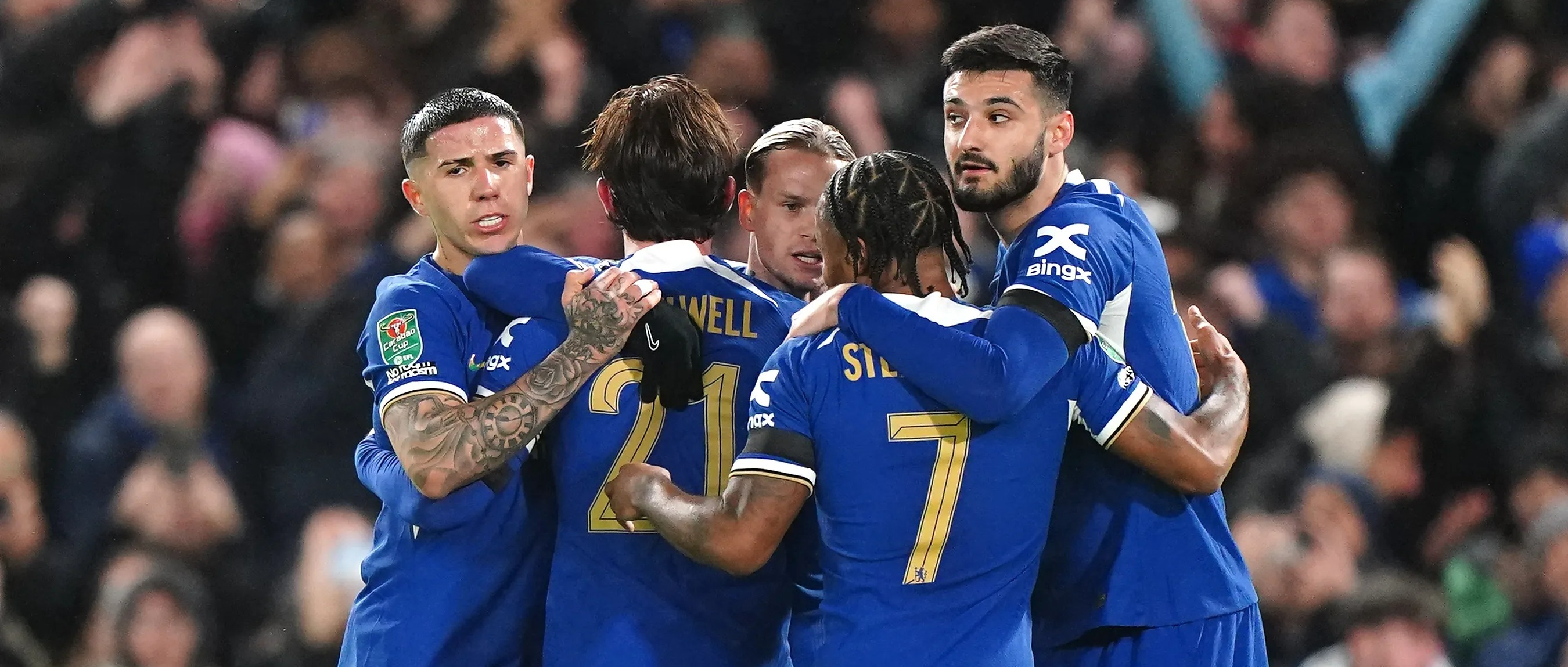Sterling's Nine-Year Goal Drought Continues
Despite a stellar performance by Raheem Sterling in Chelsea's Carabao Cup semi-final second leg against Middlesbrough, the winger's curse of not scoring in the semi-final stage of any competition remains intact. Sterling, who played a crucial role in three Chelsea goals, failed to find the back of the net himself.
A Selfless Performance
Sterling showcased his unselfishness on the pitch, providing two assists during the match. In the first goal, he opted to pass to Armando Broja instead of shooting, resulting in the ball being deflected into the net by Boro captain Jonny Howson. The second goal came from a well-executed one-two with Axel Disasi, leading to Enzo Fernandez's successful finish.
Sterling's Long Struggle in Semi-Finals
The lack of a goal in this semi-final match adds to Sterling's nine-year goal drought in this stage of tournaments. His last semi-final goal was scored in January 2015 when playing for Liverpool against Chelsea. Since then, he has failed to find the net in 21 matches across various competitions.
Success in Finals
Although Sterling has struggled in semi-finals, he has had better luck in finals. Notably, he scored two goals in the FA Cup final win against Watford and converted the winning penalty in the 2019 League Cup final against Chelsea.

Overall, Sterling's performance against Middlesbrough showcased his playmaking abilities, even if he didn't manage to end his semi-final goal curse. Chelsea's victory secured their place in the final, where they will face either Fulham or Liverpool.
Frequently Asked Questions
What is the most effective physical conditioning for football players?
Football players need a well-rounded conditioning program that focuses on various aspects of fitness. It includes endurance exercises, sprint training, power training, and flexibility training. Also, using sport-specific exercises that mimic match conditions is beneficial to prepare the body for football’s physical demands. It is possible to tailor the program for each individual by working with a certified coach or fitness professional.
How important is nutrition and diet for a professional football player?
Nutrition is an integral component of a football player’s performance and recovery. A balanced diet containing the proper combination of carbohydrates (carbohydrates), proteins, fats (fats), vitamins, and mineral is required for energy production, muscle recovery, and overall health. Dehydration has a significant impact on physical performance. Specific nutrition strategies and timing can change depending on your training schedule and matches. Consulting a sports dietician to develop customized dietary plans is often helpful.
How can I improve my football technique effectively?
To improve your football technique, you must practice consistently and focus on the fundamentals. Drills that help improve ball-control, accurate passing and precise shots are vital. Spending time perfecting your less-skilled foot and improving balance through agility exercises can greatly improve your technique. Additionally, studying professional footballers and analyzing their movements, positioning, and decision-making can provide insight and help refine your own skills.
What strategies can I use to stay motivated and focused on improving my football skills?
To stay motivated and focused, it is important to set clear goals that you can achieve and track your progress. Regularly reviewing your performances in both training and matches will help you identify areas that can be improved and also strengths which should be enhanced. Joining a group of players or finding a training partner can help foster relationships that promote persistence. A positive attitude and visualizing your success are also powerful tools for motivation. It is also important to include variety in the training routines in order to keep them interesting, as well as to allow for adequate rest and recovery.
What are the fundamental skills necessary to play great soccer?
To be a good football player, you need to develop technical, tactical and physical skills. Technical skills include ball control, dribbling, passing, and shooting. Tactical knowledge includes understanding the game such as position, movement and decision making. Speed, endurance and power are important physical attributes for performance. For the final performance factor, mental toughness as well as focus and calmness under pressure, are essential.
Statistics
- Goalkeepers who engage in specialized reaction-time training reduce their goals-conceded tally by an average of 25% over a season.
- Players who train for more than 10 hours a week show a 20% improvement in technique compared to those who train for less time.
- Teams that prioritize teamwork in training sessions increase their passing accuracy by an average of 15% in competitive matches.
- Players with a balanced diet containing adequate macronutrients have a 30% lower injury rate than those with less balanced nutritional habits.
- Studying match footage for at least 4 hours a week can lead to a 10% improvement in a player’s tactical awareness on the field.
External Links
nscaa.com
ussoccer.com
fifa.com
uefa.com
myfootballcoach.com
How To
Learn The Fundamentals Of Football
To master the fundamentals of soccer, you need to practice consistently and with dedication. Start by working on your ball control. Dribbling through cones is a great way to start. Focus on first touch drills to effectively control various types of passes. Juggling is a great way to improve your coordination and familiarity. Remember that flawless execution of the basic elements and countless training hours are the foundations of great football.

